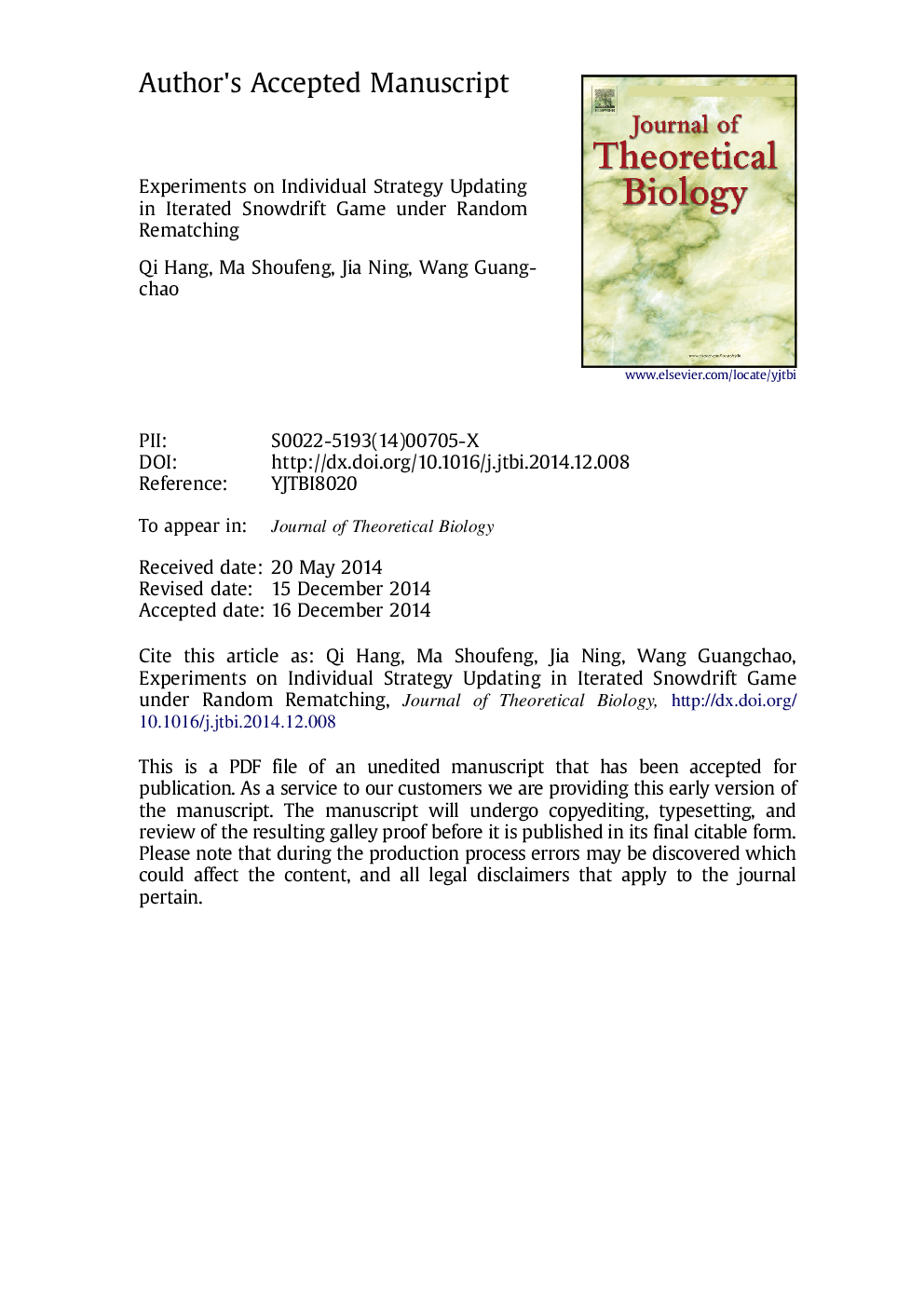| Article ID | Journal | Published Year | Pages | File Type |
|---|---|---|---|---|
| 6369966 | Journal of Theoretical Biology | 2015 | 25 Pages |
Abstract
How do people actually play the iterated snowdrift games, particularly under random rematching protocol is far from well explored. Two sets of laboratory experiments on snowdrift game were conducted to investigate human strategy updating rules. Four groups of subjects were modeled by experience-weighted attraction learning theory at individual-level. Three out of the four groups (75%) passed model validation. Substantial heterogeneity is observed among the players who update their strategies in four typical types, whereas rare people behave like belief-based learners even under fixed pairing. Most subjects (63.9%) adopt the reinforcement learning (or alike) rules; but, interestingly, the performance of averaged reinforcement learners suffered. It is observed that two factors seem to benefit players in competition, i.e., the sensitivity to their recent experiences and the overall consideration of forgone payoffs. Moreover, subjects with changing opponents tend to learn faster based on their own recent experience, and display more diverse strategy updating rules than they do with fixed opponent. These findings suggest that most of subjects do apply reinforcement learning alike updating rules even under random rematching, although these rules may not improve their performance. The findings help evolutionary biology researchers to understand sophisticated human behavioral strategies in social dilemmas.
Related Topics
Life Sciences
Agricultural and Biological Sciences
Agricultural and Biological Sciences (General)
Authors
Hang Qi, Shoufeng Ma, Ning Jia, Guangchao Wang,
